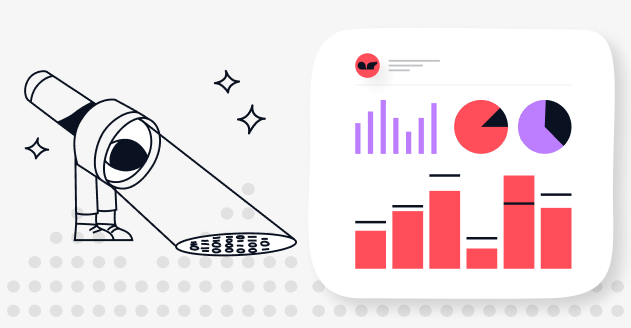Data Lineage vs Data Catalog
Differentiating, Understanding, and Choosing: Data Lineage or Data Catalog

In today's tech-driven world, organizations have access to vast amounts of data. However, without proper management and understanding, this data can become overwhelming and lead to inefficiencies. That's where data lineage and data catalog come into play.
These two concepts are crucial for harnessing the true value of data and ensuring its accuracy and accessibility. In this article, we'll explore the basics of data lineage and data cataloging, highlight their key differences, and introduce you to CastorDoc, a leading enterprise data catalog that brings trust and visibility to your data.
Understanding the basics
Before we dive into the differences between data lineage and data cataloging, let's first understand what each concept entails.
Data lineage refers to the ability to track the origin and movement of data throughout its lifecycle. Data lineage helps to ensure data accuracy, troubleshoot issues, and meet compliance requirements. With advanced technologies like artificial intelligence (AI), data lineage can be automatically tracked and visualized, making it easier for data teams to understand the flow of data and identify any potential bottlenecks or risks.
Data cataloging involves organizing and categorizing data assets within an organization. It creates a centralized repository that enables users to easily search and discover relevant data for their analysis or decision-making needs. A data catalog provides detailed information about datasets, including their structure, source, quality, and usage. It acts as a knowledge hub that enables efficient data collaboration, reduces redundancy, and promotes data democratization.
The key differences between data lineage and a data catalog
Now that we understand the basic concepts of data lineage and data cataloging, let's explore the key differences between the two.
While data lineage focuses on tracking the origin and movement of data, data cataloging aims to organize and make data easily accessible. Both concepts are complementary and essential for effective data management and governance.
Purpose and functionality
Data lineage provides a detailed view of data flows, helping organizations understand the journey of data from its source to its destination. It’s particularly useful for organizations that deal with sensitive and regulated data, such as those in the healthcare or finance industries.
On the other hand, a data catalog acts as a centralized repository of data assets, making it easier for users to find and discover relevant datasets. It provides a comprehensive view of available data, including metadata and usage information.
Users and benefits
Data lineage primarily benefits data teams and IT professionals who are responsible for ensuring data accuracy and compliance. It provides them with the necessary information to track data, troubleshoot issues, and meet regulatory requirements. Data lineage is also valuable for wider business leaders who need to have confidence in the data they use for strategic decision-making.
Data cataloging, on the other hand, benefits a broader range of users within an organization. Decision-makers, analysts, and data scientists can leverage a data catalog to easily find and understand relevant datasets for their analysis or projects. By democratizing data access, a data catalog promotes collaboration and empowers users to make data-driven decisions.
Which is right for you?
Both data lineage and data cataloging play crucial roles in data management and governance. To fully harness the power of your data, it's important to leverage both concepts effectively.
While there are various data cataloging solutions available in the market, CastorDoc stands out as a market leader for comprehensive data visibility and control. Its ease of use and AI-automation capabilities make it the ideal choice for organizations looking to streamline their data cataloging process.
To experience the benefits of CastorDoc firsthand, book a free 14-day trial. During this trial period, you'll have the opportunity to explore its features, including automated documentation, data lineage visualization, and compliance capabilities. Don't miss out on the opportunity to bring trust and visibility to your data.
Subscribe to the Newsletter
About us
We write about all the processes involved when leveraging data assets: from the modern data stack to data teams composition, to data governance. Our blog covers the technical and the less technical aspects of creating tangible value from data.
At Castor, we are building a data documentation tool for the Notion, Figma, Slack generation.
Or data-wise for the Fivetran, Looker, Snowflake, DBT aficionados. We designed our catalog software to be easy to use, delightful and friendly.
Want to check it out? Reach out to us and we will show you a demo.
You might also like
Contactez-nous pour en savoir plus



« J'aime l'interface facile à utiliser et la rapidité avec laquelle vous trouvez les actifs pertinents que vous recherchez dans votre base de données. J'apprécie également beaucoup le score attribué à chaque tableau, qui vous permet de hiérarchiser les résultats de vos requêtes en fonction de la fréquence d'utilisation de certaines données. » - Michal P., Head of Data.




.png)





